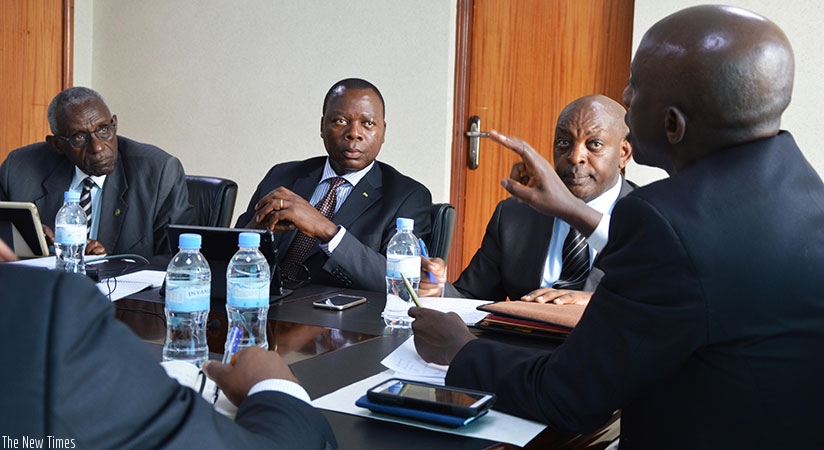The government intends to spend the next seven years building model homes for vulnerable Rwandans as one of the ways to ease access to basic utilities like water and electricity. The Minister of State in charge of Socio-economic Development, Cyriaque Harelimana, announced this while addressing members of the senatorial Standing Committe on Political Affairs and Good Governance, yesterday.


The government intends to spend the next seven years building model homes for vulnerable Rwandans as one of the ways to ease access to basic utilities like water and electricity.
The Minister of State in charge of Socio-economic Development, Cyriaque Harelimana, announced this while addressing members of the senatorial Standing Committe on Political Affairs and Good Governance, yesterday.
Updating the Committee on the government’s progress towards providing energy to citizens, the minister said input from residents was necessary.
"Let’s look at this in terms of development, every development step has its challenges. Our wish is that everyone lives in a modern home. It makes supplying of utilities faster and easier. We need everyone’s cooperation to succeed because we are still having issues of mentality,” Harelimana said.
He said that, so far, every district has a model settlement but the plan is to take integrated housing to the sector level.
Financial constraints
Harelimana cited budgetary constraints among the challenges.
"It’s very expensive. For instance, one model settlement of 40 houses costs Rwf178 billion. In Kimisagara (a city suburb), one house will cost Rwf8-11 million,” he said.
Each settlement has amenities like health centres, schools, recreation space, kraals, markets, among others.
Earlier, the Minister for Local Government, Francis Kaboneka, had told the senators that financial constraints wouldn’t stop the plan.
"When you look back at what we are dealing with right now as compared to what we have dealt with in the past 23 years, you just get to understand why we cannot be stopped by these challenges,’’ he said.
MP Consolee Uwimana said there is need for statistics on people who live in community settlements to help inform the plan to supply more people with electricity.
To this, Kaboneka explained that there were no definite numbers since the housing has transformed and been upgraded over the years.
"We do not have definite numbers because as we progressed, things got better and now we are at a point where we are focusing on modern community settlements. Our target during the next seven year term is to give each sector an integrated housing settlement. The numbers are still low but we are working on that,” he said.
Senator Chrysologue Karangwa wondered what was being done to reduce on slum areas.
"What can be done to address the issue of planned settlement in Kigali? I have moved around and seen how people are living and some of the structures in some areas are something that we need to think about. For instance, what is being done to make sure that there is no human encroachment at Mount Kigali?” he wondered.
Kaboneka said that Mount Kigali area had been demarcated and all those living on the hill knew which line not to cross.
"We have done demarcations and whoever lives there knows that should they encroach on the areas where they are not supposed to live, then we will consider it breaking the law and their houses will be demolished,” he said.
The meetings between the senators and the ministry’s top officials continue today. On Monday, the team met officials from the Ministry of Infrastructure.
editorial@newtimes.co.rw


